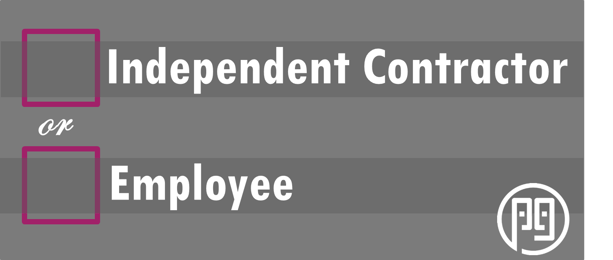We haven’t made it through a single month in 2015 without worker misclassification making headlines. With all of the high profile cases and legislation on the topic, we can expect this year to be very important in the struggle to determine who should be considered an independent contractor.
We’ve compiled some of the latest updates on a federal and state level, as well as some of the cases that continue to make headlines.
Federal
Department of Labor:
- The DOL issued updated worker classification guidance on how the Department would determine who is an “employee” and therefor covered under the Fair Labor Standards Act (FLSA) in the form of Administrator Interpretation No. 2015-1. Learn more about in our recent post.
- Idaho and Alaska became state 24 & 25 to sign a Memorandum of Understanding (MOU) with the DOL. With more states continuing to sign MOUs, we can count on worker misclassification to continue to be a top priority.
- In July, the DOL filed a suit against a Florida company, Caring First, Inc., a health care agency, alleging the firm incorrectly paid workers, including licensed practical nurses and registered nurses, as independent contractors. The suit alleges the workers were not paid overtime for work in excess of 40 hours per week in violation of labor law.
Congress:
- The Payroll Fraud Prevention Act has been re-introduced, with the same provisions as the 2014 version, in the House of Representatives by Rep. Frederica Wilson (D. FL-24) and in the Senate by Sen. Al Franken (D-Minn.) and Sen. Bob Casey (D-Pa.). This represents an ongoing effort to bring worker misclassification issues before Congress.
States
California
- With the signing of AB202 by Governor Brown, professional cheerleaders are now covered under the employee protections of the California Labor Code and may no longer be considered as independent contractors.
Massachusetts
- Since the passage of the Massachusetts Independent Contractor Act, Massachusetts has been known for its strict interpretation of who is an independent contractor under the Act’s “ABC test.” To meet the “B prong” of the test, the service provided by the worker must be "performed outside the usual course of business of the employer.” This became the key issue in the case of Massachusetts Delivery Association v. Martha Healey [1] because the “B prong’” effectively made all delivery drivers employees of the delivery company since their work was in the “usual course of business.” The U.S. District Court for the District of Massachusetts held the “B prong” of the Massachusetts law is preempted by the Federal Aviation Administration Authorization Act of 1994 because its enforcement would result in a modification of the delivery companies’ pricing routes and services. The importance of this decision is that a state independent contractor law was found to be in conflict with and superseded by Federal law.
Sharing Economy
- Homejoy ceased operations as of July 31, 2015 citing independent contractor suits as a contributing factor.
- Zirtual paused operations effective August 10th citing “market circumstances and financial constraints." It has been announced that Zirtual was acquired by Startups.co and has resumed operations as of August 17th. In a related matter, Zirtual is facing a lawsuit filed in the U.S. District Court for the District of Delaware filed by the New York attorney firm of Outten and Golden. The suit alleges Zirtual is in violation of The Worker Adjustment and Retraining Notification Act (WARN) and that the workers were not given adequate notice of the mass layoff and seeks wages, salaries, commissions, COBRA and other benefits.
- Uber was handed another setback June 3rd when the California Labor Commission ruled in favor of Barbara Ann Berwick and found her to be an employee eligible for reimbursement of expenses she incurred as an Uber driver. Uber is appealing the decision.
Cases
FedEx
- On July 8th, the 7th Circuit Court of Appeals upheld the decision of the Kansas Supreme Court that FedEx drivers were employees, not independent contractors, under the Kansas Wage Payment Act (KWPA). Craig v. FedEx Ground Package System, No. 10-3115 (7th Cir. July 8, 2015).
- On June 12th, FedEx announced a $228 Million settlement of the class action lawsuit Alexander v FedEx Ground Package Sys, Inc. N.D. Cal. No. 12-17458. The case involved approximately 2300 drivers
Other Cases
- On July 9th, Lyft was hit with an FLSA class action suit in Florida. The case, Frederic v. Lyft, was filed in the Middle District of Florida and alleges that Frederic was misclassified as an independent contractor. Per PacerMonitor, the case is currently stayed pending a joint motion for the individual arbitration of Frederic’s claims.
- O’Connor et al. v. Uber – Uber is contesting certification of its drivers as a class. The certification hearing was conducted by Judge Chen on August 6th but no ruling on the motion has been issued as of the date of this post.
-
O’Connor et al. v. Uber* – Uber is contesting certification of its drivers as a class. The certification hearing was conducted by Judge Chen on August 6th. Judge Chen has ruled that the case may proceed as a class action suit with respect to the tips claim, but this ruling will not apply to the expense claim. The Order also excludes drivers who are bound by a 2014 Uber arbitration clause. Uber drivers who worked for a third party and had no direct contract with Uber, such as UberBLACK, will also not be part of the class. One plaintiff in the case has already been dismissed for this reason. It is almost a certainty Uber will challenge the class certification.
*Updated: September 2, 2015 4:00pm
What does all this mean?
- The DOL Administrator’s Interpretation is clear that the DOL will consider most workers employees under the FLSA and use a six-part test with the emphasis on “economic reality.”
- The DOL, IRS and state agencies will continue to share information and aggressively take enforcement action against those firms that do not categorize their workers correctly.
- The use of 1099s is crucial to the economy and is expected to expand as an integral part of the labor force. However, care must be taken to document the independent contractor status and to follow federal and state regulations governing labor, unemployment and workers’ compensation.
Disclaimer: The information contained in this article is for information only and is not intended to be used as tax or legal advice.
[1] The case was originally filed by the Massachusetts Delivery Association “MDA” against Martha Coakley in her official capacity as Attorney General of the Commonwealth of Massachusetts.




 Populus Group
Populus Group Donna Morris
Donna Morris
Leave a comment